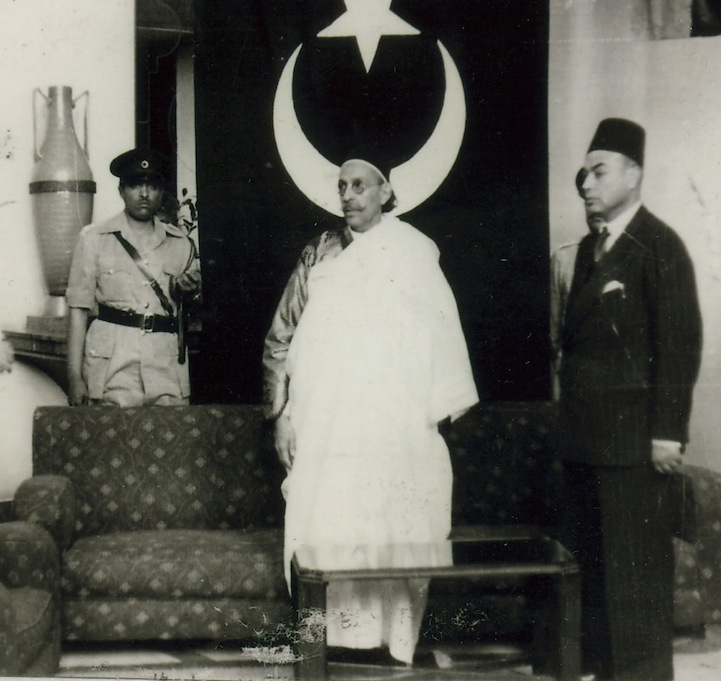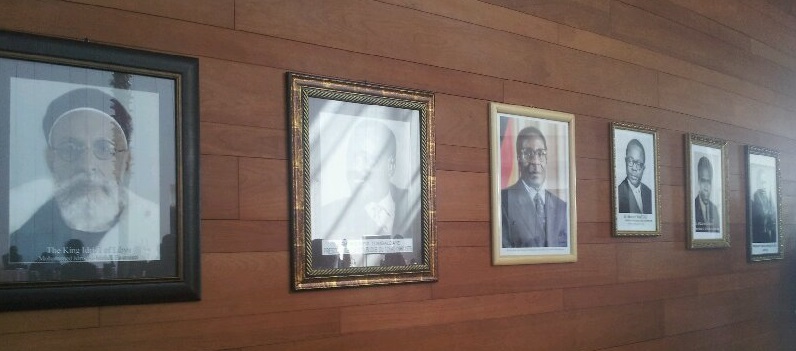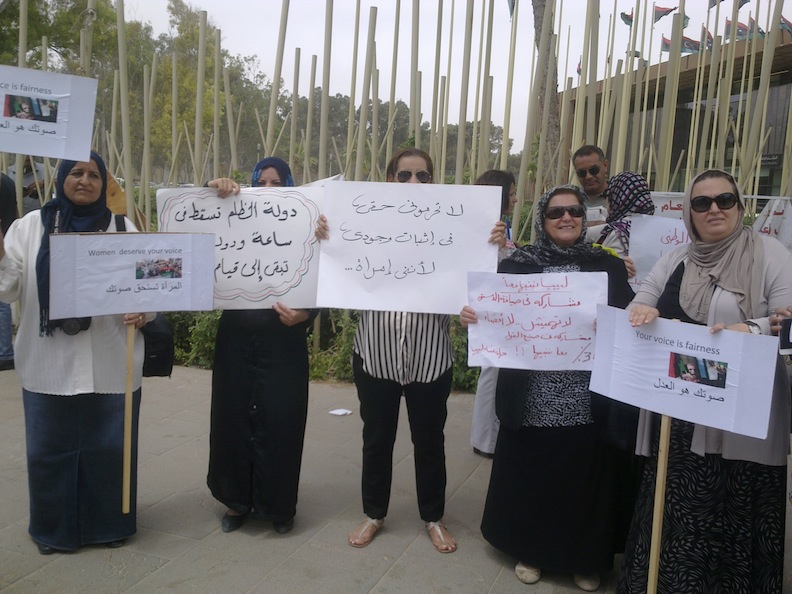By Nihal Zaroug.

Tripoli, 28 May 2013:
The late King Idris was commemorated in the Ethiopian capital Addis Abba this past week in a celebration . . .[restrict]of the 50th anniversary of the founding of the Organization of African Unity (OAU), the predecessor of the African Union (AU).
A Libyan delegation attending the celebrations was headed by Deputy Prime Minister Abdelsalam Al-Gadi.
It was agreed last January, by AU’s Assembly of Heads of State and Government, to designate 2013 as the “Year of Pan-Africanism and African Renaissance”, hence the celebrations for the half-century focused on commemorating the past, present and future of the continent. The founders of OAU and other leading actors were honoured for the occasion.
For Libya, two figures were feted during the celebrations: King Idris, one of the founding fathers of the OAU, and Omar Mukthar, the head of the Senussi forces for his struggle against colonialism. Both men were key in Libya’s independence against colonial Italy and viewed as African heroes, along with many others who fought to end imperialism in their own countries.
- Photo of King Idris in the AU hall in recognition of his work as a founding father of the OAU (Photo: Prime Minister’s Office)
By coincidence, the tribute to Kng Idris came on the thirtieth anniversary of his death in exile in Cairo.
In Ajdabiya, the local Sanussiya Brotherhood Association held a memorial at the King Mohamed Idris Al-Senussi Mosque attended, according to Libyan news agency LANA, by many local citizens, activists and civil society organisations.
OAU’s golden jubilee was more than just festivities. Several important themes were discussed over the course of the event. According to LANA, Al-Gadi signed a declaration on 27 May that would see Libya and other member states commit to wider pan-African goals over the next 50 years.
As reported by the South African Government, the Solemn Declaration on the 50th anniversary of the OAU/AU, calls on member states to pledge “themselves to gender mainstreaming and youth empowerment; peace and security; democracy and socio-economic development”.
Additionally, member states adopted a resolution to create the African Immediate Crisis Response Capacity (AICRC), widely described as a historic initiative, which will act as an intermediary rapid response force until the African Standby Forces (ASF) are operational in 2015.
AICRC will be based on voluntary participation. AU Commissioner for Peace and Security, Lamamra Ramtane, said the Crisis Response “is to provide Africa with a strictly military capacity with high reactivity to respond swiftly to emergency situations upon political, decisions to intervene in conflict situations within the continent. The aim is to establish an efficient, robust and credible force, which can be deployed very rapidly, able to conduct operations of limited duration and objectives or contribute to creating enabling conditions for the deployment of larger AU and/or UN peace operations”.
At a time when several African nations are in uncertain transition, having an independent force to deal with security vacuums on the continent could decrease the role of non-African partners in conflict intervention. [/restrict]











